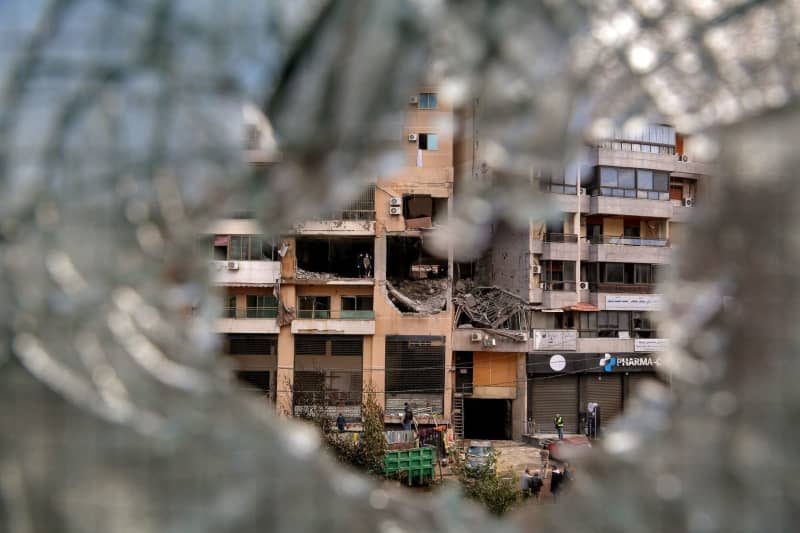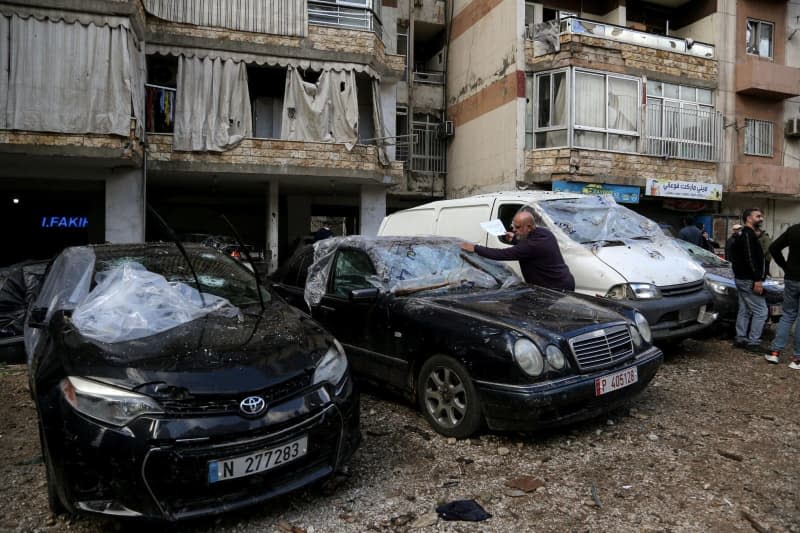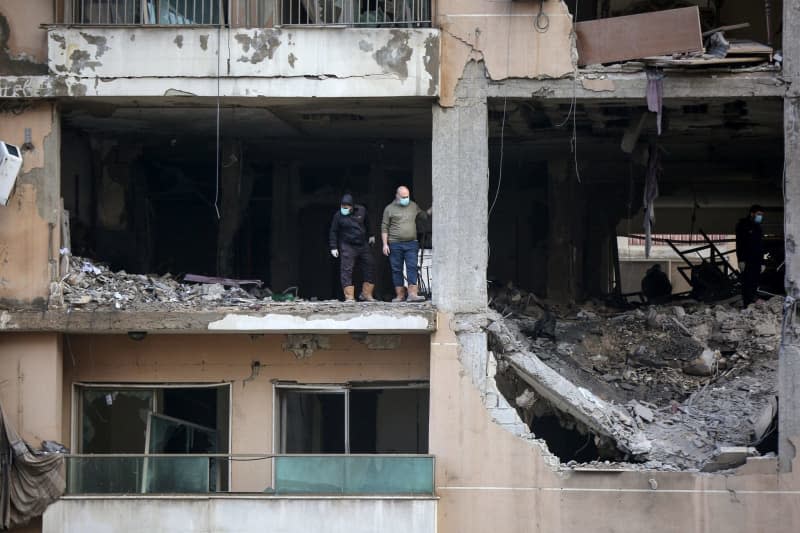Situation tense in Middle East ahead of speech by Hezbollah chief

There were calls for restraint as concerns continued to rise about an escalation of the Gaza conflict after the killing of a Palestinian Hamas leader in Beirut, where the leader of Lebanon's Hezbollah militia prepared to address supporters on Wednesday.
The UN peacekeeping mission in Lebanon (UNIFIL) said it was concerned about the security situation in the country.
The UN mission, which has been monitoring the border area between Israel and Lebanon since 1978, called on all parties to cease their fire and urged restraint.
The deputy head of the political bureau of the Palestinian militant organization Hamas, Saleh al-Arouri, was killed in an explosion in Lebanon's capital Beirut on Tuesday evening.
Hamas immediately blamed Israel. While Israel's military declined to comment on reports of a targeted killing, the Iranian-backed Hezbollah announced that this "crime will not pass without an answer or punishment."
Hezbollah chief Hassan Nasrallah was scheduled to deliver a speech late Wednesday.
The Lebanese government said it was in talks with Hezbollah to avoid an escalation after the killing in in Beirut's southern suburbs, a stronghold of Hezbollah.
According to Hamas, which is allied with Hezbollah and is also supported by Iran, a total of seven people died, including two leaders from Hamas' armed wing.
Hezbollah staged at least three attacks on Israeli posts near the Lebanese border on Wednesday, triggering retaliatory shelling on southern Lebanon, Lebanese security sources and the Israeli army said.
The Israeli army also said they attacked terrorists in Lebanon and “Hezbollah’s terrorist infrastructure.”
Hezbollah said they attacked several Israeli posts near the Lebanese border. The group also mourned the loss of two additional members, raising the death toll among Hezbollah's fighters to 142 since October 7.
Following the killing of al-Arouri, the head of Israel's Mossad intelligence agency, David Barnea, hinted at Israel's involvement, according to a report.
"Any Arab mother should know that if their son was a partner to the slaughter of October 7, his blood is [on his own hands]," the Jerusalem Post quoted Barnea as saying during the funeral of the former Mossad chief Zvi Zamir on Wednesday.
The paper saw Barnea's comments as a "clear indication" of Israeli involvement in the targeted killing in Beirut of al-Arouri, but Barnea did not mention him by name.
The newspaper said it was surprising that Barnea came out with a statement, given that Israel has not taken responsibility for the killing publicly, but it speculated that since there had been no response from Hezbollah so far, Israeli officials may have felt more secure.
Israel sees al-Arouri as the mastermind behind attacks in the West Bank.
Iran said that the killing will have consequences and blamed the United States for the rising tensions. Tehran also blamed its arch-enemy Israel for the alleged attack.
"The malicious activities of the terror machinery of this [Israeli] regime in other countries are a real threat to peace and security," Iran's Foreign Minister Hossein Amirabdollahian wrote on the platform X.
Following the killing, schools, universities, banks, restaurants and government offices in the West Bank were closed on Wednesday due to a general strike.
Demonstrations and confrontations with Israel's army in the Palestinian territory were called for Wednesday afternoon, according to Israeli media reports. The military reportedly carried out raids in several locations there overnight.
Palestinians protested on Tuesday evening in al-Arouri's home village of Arura, north of Ramallah, as well as in Ramallah itself.
Al-Arouri's mother and sister told the Qatari-based TV channel Al Jazeera that they had been expecting his killing for a long time.
It was initially unclear whether the military operations were connected to the killing of al-Arouri. The army regularly carries out raids in the West Bank, even more so since the start of the Gaza war following the Hamas massacre on October 7.
According to Israeli security forces, 2,570 suspects have been arrested there since then, 1,300 of whom have links to Hamas.
Meanwhile, at least 128 Palestinians have been killed in Israeli attacks in the Gaza Strip in the past 24 hours, the Hamas-run Health Ministry said on Wednesday.
Around 261 other people were injured in a total of 10 attacks, the health authorities said.
Since the beginning of the war almost three months ago, a total of 22,313 people have been killed and 57,296 others injured, the authority said.
On Tuesday, the ministry had given the figure as 22,185 dead and 57,035 injured.
The figures cannot be independently verified. The ministry does not distinguish between civilians and armed members of terrorist organizations.
In view of the high number of civilian casualties in aerial bombardments and ground raids, the Israeli military campaign has faced strong criticism internationally.
The war was triggered by the worst massacre in Israel's history, carried out by terrorists from Hamas and other extremist Palestinian organizations on October 7. Roughly 1,200 people were murdered and 240 were taken hostage in southern Israel.



